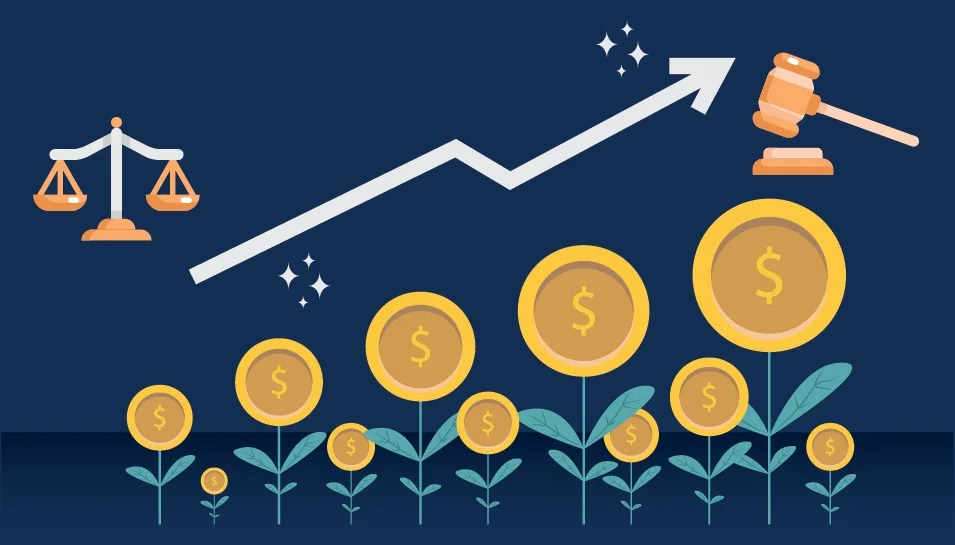It is a pillar of fair society to have access to justice. However, due to the fact that the expenses of bringing a legal claim are high to many individuals and businesses, this becomes an insurmountable obstacle. Enter litigation funding- a potent innovation that is revolutionizing the access to justice. Referred to as justice that pays its own way, litigation finance enables parties to pursue a legal claim that has a chance of success without having to pay the up-front cost, which essentially equalizes the playing field.

What Is Litigation Finance?
Third-party litigation funding or litigation finance is a financial agreement where an outsider investor or funder funds the legal fees of a case in a transaction that is contingent upon receiving a percentage of any awarded settlement or judgment. The most typical characteristic of such arrangements is that they are non-recourse: in an unsuccessful case the plaintiff would owe nothing to the funder.
This entails that plaintiffs and law firms no longer have to depend on their own resources or risk it all using contingency fees. Rather, they can tap into the capital that enables them to be able to fully develop their cases, pursue just outcomes, and even undertake heavier and more complex claims.
Why Is It Called “Justice That Pays for Itself”?
It is a very appropriate phrase to describe litigation finance. Rather than plaintiffs or businesses paying lawyers on their own or giving up their cases because they lack the money, the funders pay up-front fees and only receive repayment in the event that the case succeeds or reaches a favorable settlement.
Thus, the legal claim itself becomes an asset with a financial value, which finances the quest for justice. Litigation costs are deducted from the proceeds, thus the system can, in effect, pay for itself—without requiring the claimant to pay upfront.
Benefits of Litigation Finance
1. Access to Justice for All
Among the most substantial advantages is the fact that litigation finance makes access to courts more democratic. It does not matter whether you are a person who sues a large corporation or a small business that has to fight an unfair contract- the lack of funds is no longer an obstacle.
2. Risk Mitigation
Litigation is uncertain, expensive, and time-consuming in nature. By shifting the finance risk to professional funders, plaintiffs are able to make their claims without fear of bankruptcy or loss of vital capital.
3. Stronger Legal Position
Designated funding usually means a stronger case can be prepared- through comprehensive discovery, professional witnesses, and law tactics. This has the potential to enhance the probability of positive outcomes and settlement stances.
4. Enables Law Firm Growth
Law firms can use litigation finance to accept more contingency cases and invest in the more complex litigation that they otherwise could not afford.
5. Attractive Investment Opportunity
To funders and investors, litigation finance presents the opportunity to invest in a completely new asset class which, as it is not yet fully uncorrelated with traditional markets, can bring in attractive returns.
Addressing Concerns and Challenges
Although the litigation finance has numerous advantages, it has also been a source of query in terms of ethics, transparency, and control of the litigation funders to the litigation strategy. Regulatory systems are currently changing to deal with such concerns so that litigation funding can be utilized in a responsible way to facilitate valid claims without undermining justice.
The Future of Litigation Finance
The rise in awareness has seen litigation finance as a mainstream legal strategy in legal strategy across the globe. Innovations like portfolio funding, arbitration finance and diversification into new markets are some of the few indicators of the dynamic potential of this field.
The idea of “justice that pays for itself” is no longer just a good idea – it is a practical fact helping bring more just, efficient and accessible legal systems.
Conclusion
Litigation finance is a game changer, bringing the gap between justice and affordable. Through transforming legal claims into self-funding assets, it benefits plaintiffs, helps law firms and opens new doors for investors. In a world where justice can be costly, litigation finance pays for itself and lets that justice truly pay for itself.
Recent Posts

Running a Business While Battling a Lawsuit?

Tired of Legal Stress and Rising Court Costs?

